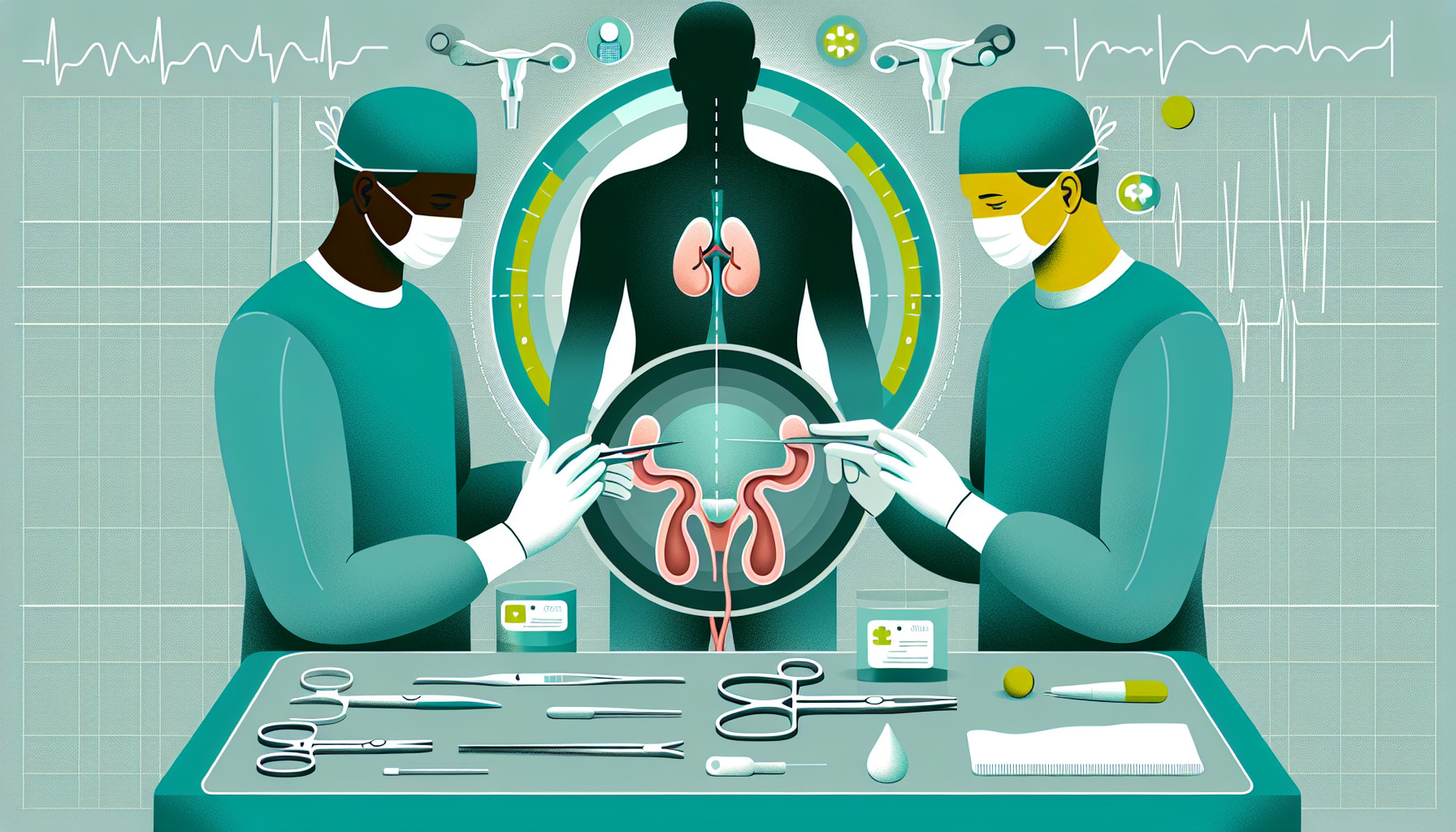Our Summary
This research paper is about the use of robotic-assisted surgery for removing the bladder, a procedure known as radical cystectomy. Previous observational studies have shown that this method can be very useful. Randomized controlled trials (a type of scientific experiment) further suggest that using robotic assistance with a particular procedure (extracorporeal urinary diversion) could lead to less blood loss, a lower need for blood transfusions and similar cancer-related outcomes. It might also be more cost-effective, although it could increase the time spent in surgery. There are ongoing experiments comparing this method with traditional open surgery, but it might take several years to fully understand how useful it is. The paper also suggests that discussing other aspects related to the surgery, such as when it’s appropriate, the results, patient care, access to specialist centers, and ways to reduce complications, could be just as important as the surgical technique itself.
FAQs
- What is the potential benefit of robotic-assisted radical cystectomy (RARC) compared to open radical cystectomy?
- What trials or studies are currently ongoing to further evaluate the utility of RARC?
- How does the use of RARC impact estimated blood loss, rate of transfusion, and operative times?
Doctor’s Tip
A doctor might tell a patient considering cystectomy:
“Consider discussing with your healthcare provider the option of robotic-assisted radical cystectomy, as it may have benefits such as decreased blood loss and transfusion rates. It’s also important to explore care pathways, access high-volume care centers, and work on minimizing complications.”
Suitable For
Patients with invasive bladder cancer that has not responded to other forms of treatment, such as chemotherapy or radiation therapy, are typically recommended for cystectomy. Additionally, patients with non-invasive bladder cancer that has a high risk of progressing to invasive disease may also be recommended for cystectomy. Other patients who may be recommended for cystectomy include those with recurrent or refractory bladder cancer, those with bladder cancer that has spread to surrounding tissues or organs, and those with certain types of neurogenic bladder dysfunction. Ultimately, the decision to recommend cystectomy is based on the individual patient’s specific circumstances and medical history.
Timeline
Before cystectomy: The patient will undergo various tests and evaluations to determine the need for cystectomy, including imaging scans, blood tests, and consultations with a multidisciplinary team of healthcare providers. They may also undergo chemotherapy or radiation therapy before the surgery to shrink the tumor and reduce the risk of complications.
Day of cystectomy: The patient will be admitted to the hospital and prepared for surgery. The surgery usually lasts several hours, during which the diseased bladder and surrounding tissues are removed. The surgeon may also create a new way for the patient to pass urine, such as a urinary diversion.
After cystectomy: The patient will spend several days in the hospital recovering from the surgery. They may experience pain, fatigue, and difficulty passing urine initially. They will be closely monitored for any complications, such as infection or blood clots. Physical therapy may be recommended to help regain strength and mobility.
Weeks to months after cystectomy: The patient will gradually resume normal activities and may undergo additional treatments, such as chemotherapy or immunotherapy, to prevent the cancer from returning. They will have regular follow-up appointments with their healthcare team to monitor their recovery and overall health.
Overall, the patient’s experience before and after cystectomy can be challenging, but with proper care and support, many patients are able to recover well and resume a good quality of life.
What to Ask Your Doctor
- What are the potential risks and complications associated with cystectomy?
- How will the surgery impact my quality of life and daily activities?
- What is the expected recovery time after cystectomy?
- What are the potential long-term effects of cystectomy?
- What are the expected outcomes in terms of cancer control and survival?
- Are there alternative treatments or less invasive options for my condition?
- How many cystectomies have you performed, and what is your experience with this procedure?
- Will I need any additional treatments or therapies after the surgery?
- How can I prepare for the surgery and optimize my recovery?
- What support services or resources are available to help me before and after the procedure?
Reference
Authors: May D, Gills J, Delacroix SE Jr. Journal: Urol Clin North Am. 2018 May;45(2):183-188. doi: 10.1016/j.ucl.2017.12.012. Epub 2018 Feb 21. PMID: 29650134
